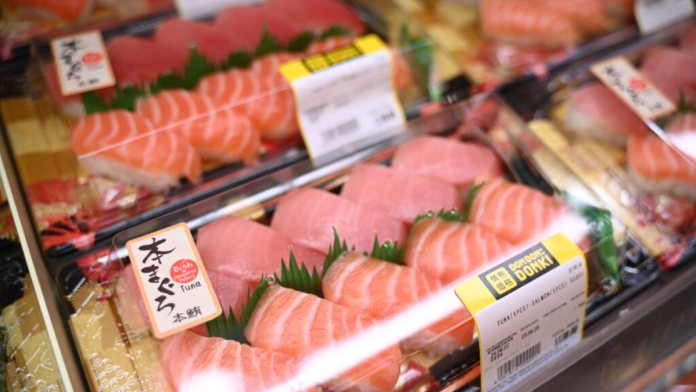China has announced a fresh suspension on imports of Japanese seafood, according to multiple reports. This move comes at a tense moment in relations between the two countries. The decision follows a diplomatic conflict arising from recent remarks made by Japan’s Prime Minister Sanae Takaichi about Taiwan.
Earlier this year, China lifted restrictions on Japanese marine products, restrictions that were originally imposed after treated water from Japan’s Fukushima nuclear plant was released into the ocean. But now, Beijing says it needs to reimpose the ban so it can carry out “further monitoring.”
What Sparked the Dispute
The immediate trigger for the renewed ban appears to be political, not just environmental. The Japanese prime minister recently made comments in parliament stating that a Chinese attack on Taiwan could threaten Japan’s own survival — and that Tokyo might be forced to consider military action in such a situation. These remarks have been met with strong criticism from Chinese officials and state media.
In response, China lodged an official protest with Japan. Beijing argues that the Japanese leader’s “erroneous remarks” violate international norms and undermine the political foundations of China-Japan relations. At the same time, China has advised its citizens to avoid travelling to Japan.
To cool tensions, Japan sent senior diplomatic officials to China for talks. During these meetings, China once again raised objections to the prime minister’s Taiwan comments and insisted that it must closely guard its own security and political integrity. Reports suggest the meetings were strained, with body language between the two sides described as cold and distant. One Chinese official was said to have declined a handshake during the talks, signalling strong diplomatic displeasure.
Economy reels as Washington’s tariffs bite — Japan records first contraction in 6 quarters
Impact on Trade and Economy
The seafood ban is more than just a political jab — it carries real economic weight. Before this dispute escalated, China accounted for a substantial portion of Japan’s seafood exports, making it a key market for Japanese fishermen and seafood companies. Losing access to Chinese markets could have serious financial consequences for the Japanese seafood industry.
Because of this ban, Japanese seafood exporters are expected to face a sudden drop in demand from one of their major overseas buyers. The timing is particularly sensitive, since the earlier 2023 restrictions were already a heavy blow to the sector. For China, the ban sends a clear message: political disagreements can directly affect trade.
The restriction doesn’t just hurt fishermen and exporters; it also affects the broader supply chain. Shipping companies, distributors, and even restaurants that rely on Japanese seafood may feel the ripple effects as the volume of imports drops sharply.
China’s generals vanish as Xi’s purge tears through Rocket Force — nuclear command under suspicion
Cultural Fallout and Diplomatic Fallout
The diplomatic dispute is not contained to trade alone — it is spilling over into cultural exchanges, too. In recent days, Chinese media agencies have announced the postponement of two major Japanese film releases in China. These films had been scheduled for nationwide screening, but the diplomatic row has delayed their launches.
Such postponements signal how deeply politics is now entangling cultural ties. By blocking Japanese films, China is using non‑economic tools to increase pressure on Japan. This adds a new layer to the dispute, showing that the fallout is not just financial but also symbolic.
On the diplomatic side, both countries are visibly warring over tone and trust. China has strongly criticised Japan’s remarks on Taiwan as a violation of basic international rules. Meanwhile, Japan defends its position, saying its comments reflect a legitimate concern for its security. The two sides appear locked in a serious stand‑off — with little sign, for now, of common ground.


